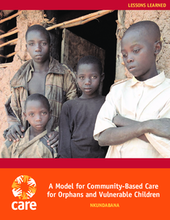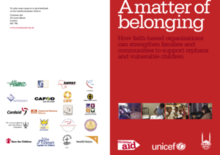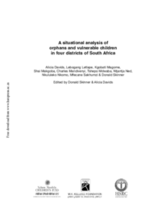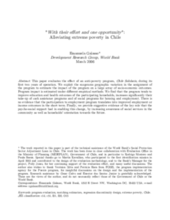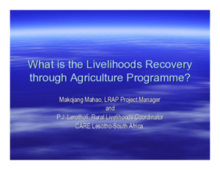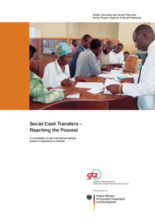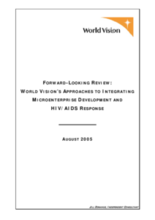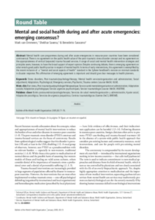Displaying 461 - 470 of 501
A lessons learned document reviewing impacts of a community-based care and mentoring program for child-headed households in Rwanda.
A guide for faith-based organizations working in developing countries on issues related to orphans and vulnerable children. Contains examples of successful community-based and family support care programs throughout the world that are run by faith-based groups. Discourages the use of institutional care and orphanages.
Identifies strengths and weaknesses of services offered to OVC in South Africa. A detailed list of recommendations suggests improvements to services.
Evaluates the effect of an anti-poverty program, Chile Solidario, during its first two years of operation. Estimate the impact of the program on a large array of socio-economic outcomes including education, health, housing, and employment. Finds also suggest the key role that psycho-social support had in enabling this change, by increasing awareness of social services in the community as well as households’ orientation towards the future.
A description of a multi-level intervention in rural Lestho aimed to improve the livelihood security of vulnerable households by improving home gardening, increasing awareness of HIV/AIDS, and influencing policy. By focusing on rural livelihoods and economic empowerment the program had some success in raising awareness and strengthening resilience to the HIV/AIDS epidemic.
This paper examines childcare policy in Mozambique. It finds that vulnerability increases when orphans are placed in resource-poor kinship care arrangements.
This report reviews the faltering progress made in childcare reform across Central and Eastern Europe and the former Soviet Union over the 15 years since the ‘orphanages’ of Romania were revealed to the world.
This paper explores the role and process of social cash transfers to reduce poverty and provide social protection. It examines a pilot cash transfer program in Zambia.
A report on several pilot projects launched by the World Vision and affiliated microfinance institutions to address the association between poverty and HIV. A description of pilot projects in Zimbabwe, Uganda, South Africa and Malawi are discussed.
A summary of the debate on the value of PTSD and trauma-focused care during and after acute emergencies. Argues for and outlines distinct intervention strategies to be considered for acute emergency and post-emergency phases.

